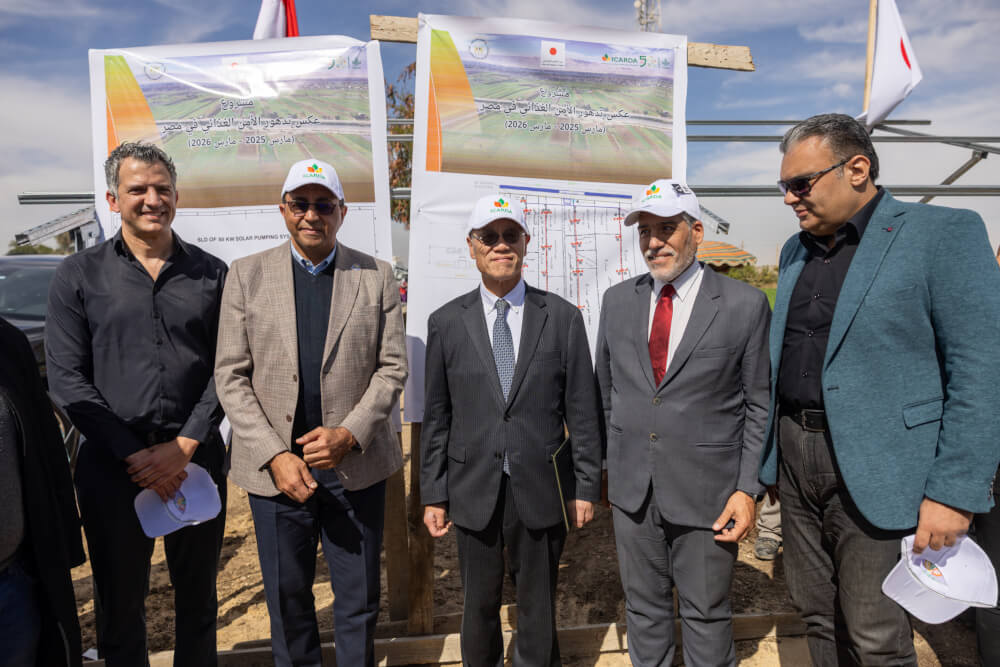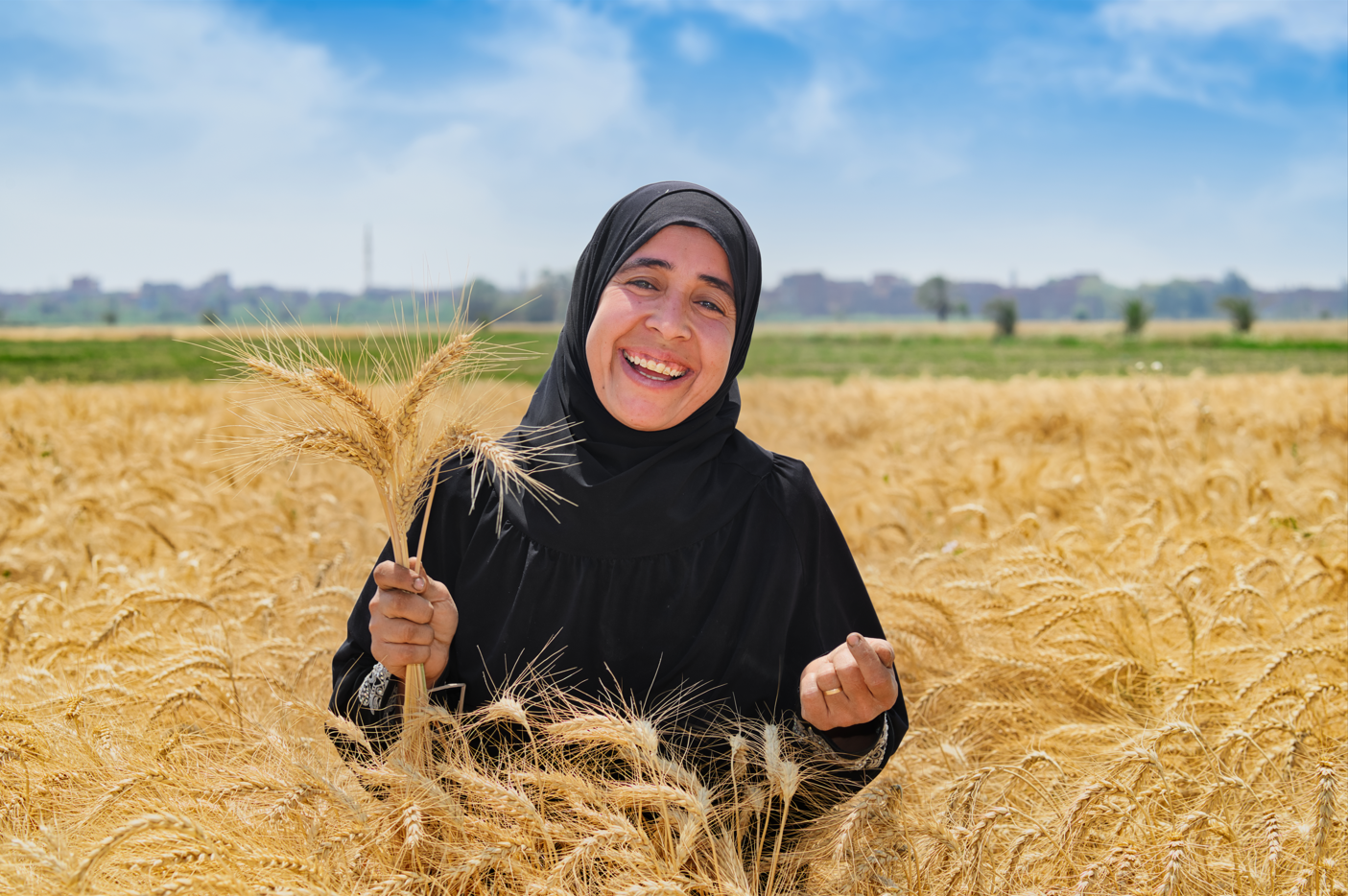The bright side of shade: agrivoltaics for sustainable water management in drylands
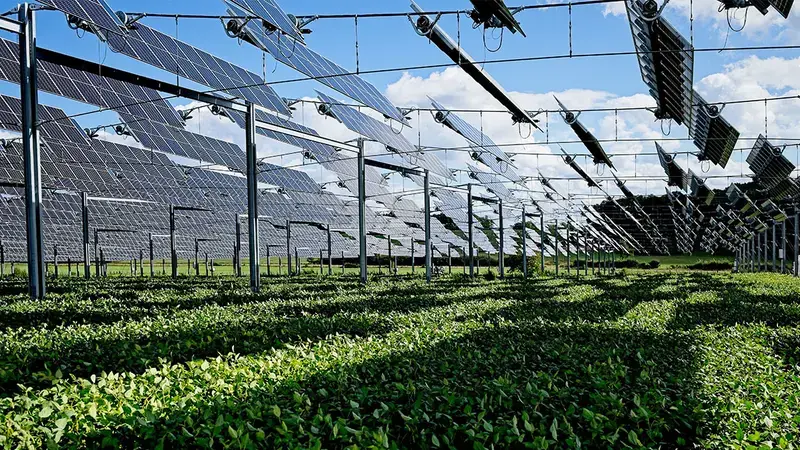
As the World marks Water Day 2025 on March 22 under the theme "Glacier Preservation", ICARDA highlights agrivoltaics. This innovative solution optimizes water use while enhancing dryland food and energy production.
As distinct as they may seem, glaciers and drylands have something in common: water. In abundance for the former, in paucity for the latter. Sadly, both are under the threat of climate change.
While glaciers, which are the main focus of this year's World Water Day, are melting at an ever-increasing pace, threatening to alter the water cycle in ways that can heavily affect people and the environment, drylands are more than ever exposed to water scarcity.
In the MENA region, to help countries make do with limited water resources while addressing growing energy demand and food insecurity, ICARDA is developing a flagship innovation solution: agrivoltaics. "In addition to avoiding competition for land resources between energy and agriculture, adopting agrivoltaic systems can help save water and generate clean and affordable energy, which in turn can help increase food production in drylands", says Dr. Vinay Nangia, Soil, Water, and Agronomy Team Leader, ICARDA.
By integrating agriculture and solar energy production on the same land, agrivoltaics provides the right amount of shading to crops, further helping conserve water by reducing the plants' direct sunlight exposure, and lowering evaporation rates and their overall water needs.
This revolutionary technology has been gaining attention worldwide, and the MENA region is no exception. Blessed with abundant solar radiation, the region has one of the highest levels of solar energy potential globally, with some areas reaching a specific yield of over 2000 kWh/kWp annually. These ideal conditions for solar energy make MENA countries prime candidates for adopting and developing agrivoltaics.
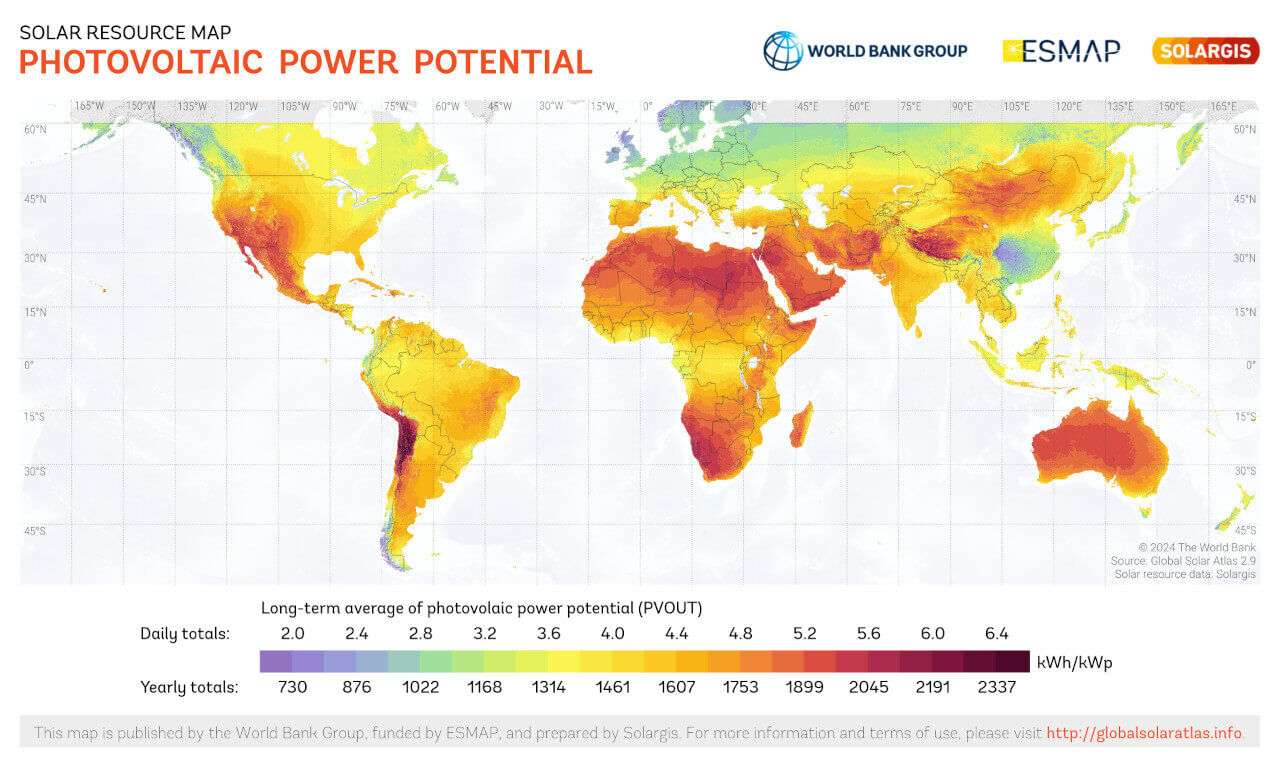
By integrating solar panels into farming practices, agrivoltaics address two goals at once: they support sustainable crop growth with lower water uses and generate renewable energy. This allows farmers to mitigate heat stress impacts and tap into new income streams, strengthening the local economy while simultaneously addressing the region's most pressing challenges, such as water management.
Leveraging agrivoltaics for water management
Agrivoltaics provide a better alternative to traditional water-lifting methods that often rely on fossil fuel-powered pumps, offering a more reliable option for farmers in remote agricultural areas with limited access to electricity. Also, covering irrigation canals with solar panels is another innovative water-saving approach which reduces evaporation loss and aquatic weed growth.
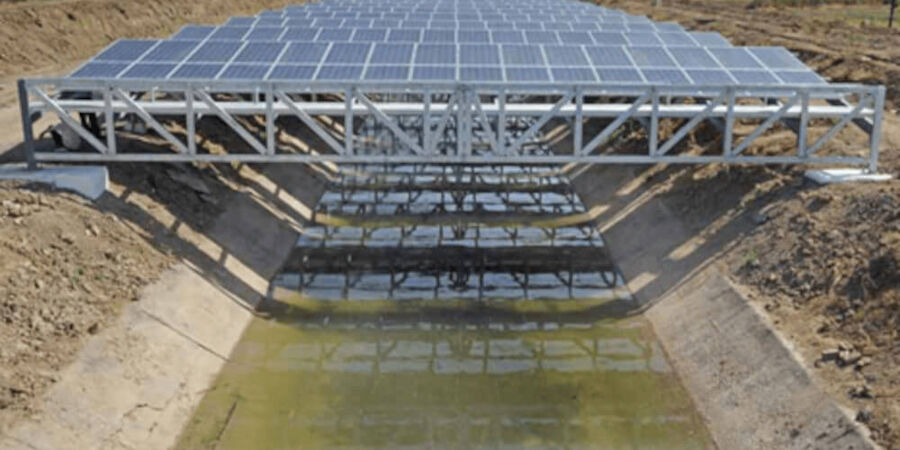
ICARDA scientists are taking this innovation to the next level by installing and running collective low-energy drip irrigation systems powered by their custom-designed agrivoltaic systems for more resource-efficient agricultural practices.
Partnering for Innovative Agrivoltaic Solutions in Egypt
Like several other countries in the MENA region, Egypt faces harsh climate conditions marked by scorching hot summers and recurrent droughts that damage crops and hinder agricultural productivity. The record-breaking heatwave Egypt experienced in 2023 is a good example of extreme weather events that are likely to become even more frequent, threatening the country's food security and highlighting the urgent need for innovative solutions.
In response, the Enhancement of Agricultural Productivity Project in Egypt, implemented by FAO and ICARDA, and funded by the Japanese Government, includes establishing multiple agrivoltaic systems in Qena, Menia, and Kafr El Sheikh Governorates. These systems offer a more efficient land-use approach than traditional solar irrigation methods. They optimize land use by enabling farmers to grow crops and generate renewable energy, maximizing land productivity and contributing to a more sustainable agricultural future.
“Although the agrivoltaics' implementation is still in its early stages, ICARDA is anticipating reaping many benefits from these innovative solutions, including reduced water consumption, increased crop yields, and significant reduction of irrigation costs”, says Dr. Mohie el Din Omar, Research Associate – Irrigation and Water Management at ICARDA and lead of this study. Initially, this is being made possible through the partial shade provided by the solar panels that help to protect crops from extreme heat. Then, by generating solar power on-site, farmers are reducing their reliance on diesel fuel, which is prevalent in Egypt, decreasing their dependence on the public electricity supply.
ICARDA is studying the performance of these systems to gather key insights on the best ways to design and manage agrivoltaics in the MENA region, helping to shape future projects and boost adoption across the area.
Empowering farmers through knowledge sharing
ICARDA has been actively working to promote the benefits of integrating solar panels into agriculture as part of its ongoing commitment to green transition. Farmers can now understand how the partial shading offered by solar panels reduces UV radiation, mitigates heat stress and reduces water use.
Through a participatory approach and hands-on training and mentorship, ICARDA ensures farmers effectively adopt agrivoltaic systems, which helps stabilize their incomes and consequently create lasting changes in rural livelihoods.
As the MENA region faces growing water scarcity, food insecurity, and climate change challenges, innovative solutions like agrivoltaics offer hope for a sustainable agricultural future. With promising early results, ICARDA's ongoing research and pilot projects on agrivoltaics are helping to transform the ways in which water management, agriculture productivity and energy production go hand in hand.

